According to Gong's newest State of Revenue Growth Report, when asked if their CRM provides a comprehensive understanding of their customers, only 10% of respondents strongly agreed. This statistic is even more striking for media and events businesses, where revenue streams are uniquely interconnected and complex.
CRM Alone Isn't Enough
Media and events companies operate as sophisticated orchestrators, managing multiple interdependent customer segments. Consider a trade show organizer: exhibitors need attendees to justify their investment, while attendees rely on exhibitor quality and diversity to validate their participation. Similarly, B2B media platforms must balance subscriber value with advertiser reach, while ensuring content quality maintains audience engagement across digital, print, and in-person channels.
Your CRM Doesn’t Capture What Really Drives Revenue
This interconnected ecosystem generates data across numerous touchpoints - from webinar participation rates to exhibition floor dwell time, content engagement metrics to advertising performance. While CRM systems excel at managing direct customer relationships, they weren't designed to capture these industry-specific interactions and dependencies that truly drive revenue performance.
To build an accurate revenue picture, media and events leaders need to integrate data from multiple specialized systems that capture the unique dynamics of their business model. The impact on top and bottom lines can include the ability to:
1. Detect and address customer churn effectively.
2. Spot and capitalize on upselling and cross-selling opportunities.
3. Scale top-performing sales strategies to help elevate B players into A players.
4. Refine and implement high-converting sales processes, pricing strategies, and packaging tailored to specific customer segments.
5. Identify and grow “outlier” revenue streams.
6. Enhance the accuracy and reliability of sales forecasts.
7. Minimize the time and resources spent on reforecasting.
8. Improve unit-level economics and profit margins, even down to individual customer insights.
9. Optimize pricing and packaging strategies to ensure maximum value delivery.
10. Uncover program performance issues and pivot.
And more….
10 Data Sources Every Revenue Leader Should Be Using
Here are the 10 essential non-CRM data sources that provide crucial insights for revenue leaders in media and events:
1. Event management platforms (attendance patterns, exhibitor ROI metrics, session engagement, buyer-seller matching data)
2. Digital content platforms (subscriber behavior, content consumption patterns, topic preferences, gated content conversions)
3. Advertising operations systems (campaign performance, yield metrics, advertiser engagement scores)
4. Marketing automation platforms (email engagement, lead scoring, nurture campaign effectiveness across audience segments)
5. Community/networking platforms (member interactions, discussion topics, peer-to-peer connections, expert engagement)
6. Virtual event platforms (attendance duration, interaction rates, networking effectiveness, sponsor visibility metrics)
7. Mobile event apps (attendee behavior, meeting scheduling, live polling results, exhibitor lead scanning)
8. Business intelligence tools (cross-platform audience overlap, segment profitability, lifetime value analysis)
9. Social media analytics (community engagement, influencer impact, content sharing patterns, sentiment analysis)
10. Customer data platforms (unified profiles, cross-channel journey mapping, segment propensity modeling)
The data universe for the media and events landscape is so much more complex than what tends to be reflected in traditional CRMs, and often the signals from beyond the digital walled garden and even offline sources are where the keys to robust customer understanding lie. For an industry that is truly at its best when it supports and represents the nuances of all its audiences’ behaviors, it deserves an equally nuanced and inclusive, while highly sophisticated, data strategy.
Revenue Room™ Connect: Built to Fuel What's Next
Join Revenue Room™ Connect now for free to access expert insights, attend high-impact events, connect with industry peers, and gain the strategic tools to fuel sustainable revenue growth. About the Author
Heather Holst-Knudsen is a distinguished figure and expert in the events, media, marketing and technology sectors. Using her extensive experience, she guides clients in adapting to structural economic and market changes, seizing the chance to innovate and evolve. She specializes in digital and data disruption and opportunity, exploring how these overarching factors can impact revenue growth, customer-centricity, operational efficiency, profit margins, and the overall valuation of companies in both public and private markets.
Her journey began at her family business, Thomas Publishing Company, where she honed her skills. She further expanded her expertise by holding positions at early industry giants Miller Freeman, Reed Elsevier, and IDG. Returning to Thomas Publishing, Heather founded and spearheaded Manufacturing Enterprise Communications, an integrated media portfolio connecting buyers and sellers in the manufacturing and technology sectors. Starting in 2015 and spanning the next seven years, she leveraged her expertise as a revenue and business leader in various SaaS businesses, including Feathr, Gleanin, Brella and Edflex.
Heather is deeply passionate about digital innovation, data monetization, and AI and how these strategies fuel revenue growth, profitability, and company valuation. To serve and create value for clients in these areas, she launched H2K Labs, dedicated to generating and leveraging value through data for media, business information, events, and adjacent technology and service markets. 



